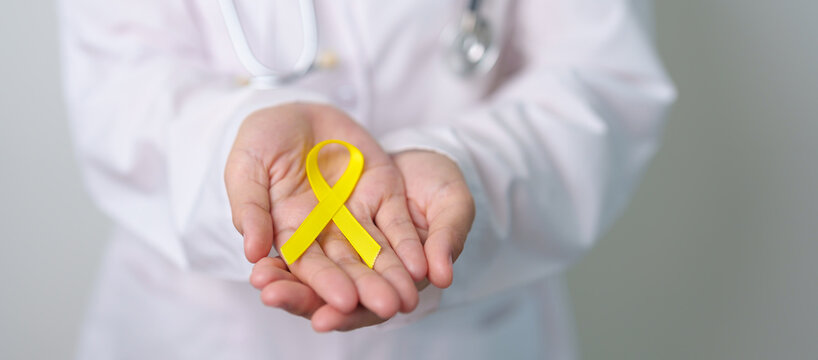
July is Sarcoma Awareness Month. It is an opportunity to promote understanding of a condition frequently called the “forgotten cancer.” Sarcoma is a type of cancer that affects the body’s connective tissues. It can affect children and adults and begins in bone or soft tissues such as fat, cartilage, or muscle. Sarcoma Awareness Month increases awareness of a relatively uncommon condition. This aids advocacy groups, which are frequently hampered by the fact that many people are unaware that this type of disease exists. The public’s lack of awareness and comprehension of Sarcoma makes obtaining money for research and treatment development considerably more difficult. Keep reading to find out more about the sarcoma awareness month.
What exactly is Sarcoma?
Sarcoma is a broad term describing a type of cancer that develops in connective tissues, the cells that keep the body together. It can begin in any cell, including those found in bone, fat, muscle, cartilage, tendons, blood vessels, or supporting tissue.
Sarcomas are more typically found in the arms or legs, which contain the majority of the body’s connective tissue. However, because sarcoma can develop everywhere in the body, the illness has hundreds of distinct subgroups.
These are divided into two major categories:
- Sarcoma of soft tissue
- Sarcoma of non-soft tissues (bone cancer)
Soft tissue sarcomas, as the name implies, begin in soft tissues such as muscle, fat, nerves, and tendons. Rhabdomyosarcoma, vascular tumors, and Kaposi sarcoma are all kinds of soft tissue sarcoma.
Non-soft tissue sarcomas develop in the bone. Osteosarcoma is the most prevalent type of bone cancer, and it usually develops in the major bones of the arm or leg. Ewing Sarcoma, malignant fibrous histiocytoma, and chondrosarcoma are examples of other types.
The Significance of Sarcoma and bone cancer Awareness Month.
The first Sarcoma Awareness Month was observed in July 2008. Sarcoma awareness month was founded in 2007 during a gathering of sarcoma supporters in Seattle. Given that Sarcoma is a rare type of cancer that can develop anywhere in the body, the advocates concluded that sarcoma awareness month is essential.
The sarcoma community comes together in July to support advocacy efforts on behalf of sarcoma patients, survivors, and their families. Sarcoma Awareness Month highlights the need for more research and improved therapies through social media, educational conferences, and fundraising events.
Ways to participate in sarcoma awareness month.
Posting images, videos, and infographics on social media is one of the ways to support the cause. To make it even simpler for you, the Sarcoma Foundation of America (SFA) has produced shareable graphics.
Contacting the local media or congressional representatives is another way to get engaged. Use the hashtag #SarcomaAwareness to mention them in your social media postings. Every year, regional races are planned for several cities around the country. The SFA is responsible for organizing the yearly Race to Cure Sarcoma.
Ways to support a loved one with Sarcoma.
Dealing with a cancer diagnosis and watching a loved one undergo treatment can be challenging. Here are some ways that you can support someone who is battling Sarcoma.
Give compassion and support.
The best thing you can do for a loved one with Sarcoma is to love and support them emotionally. They still want to see you, talk to you, and laugh with you because they are still your loved ones. Recognize their new health concerns while also treating them as you usually would.
Attend Medical Appointments
Your loved one may need to attend numerous doctor appointments to manage their treatment plan. Having someone else present can be beneficial because medical jargon can occasionally be intimidating or unclear.
Take an active part in your loved one’s care and attend appointments as you can. Make sure you and your loved one know all the options by asking questions. However, if your loved one is capable, let them make the final treatment decisions.
Prepare wholesome meals.
To preserve their vigor, people must consume a balanced diet. Prepare whole meals to assist your loved one. You might even order some food to be delivered to your loved one’s house if you don’t live nearby. Just be mindful of any dietary limitations and preferences.
Providing Assistance with Movement
The symptoms of Sarcoma might include joint pain, swelling, and even unplanned fractured bones. Moving around can be painful due to these sensations. They might also require surgery to remove all or some cancer cells. You can support your loved ones by guiding them carefully through the house. This could entail shifting furniture, relocating frequently used items, assisting the person using a wheelchair or walker, etc.
Hire a Qualified Caregiver
Consider hiring a professional caregiver if you don’t live close to your loved one or if other obligations prevent you from being there to help them. All of the tasks listed here can be carried out by caregivers with the same care and consideration that you would. A caregiver can help you refocus on your relationship with your loved one rather than on taking care of them, even if you live close by.
Wrap up.
For the past 15 years, July has been dedicated to sarcoma awareness as part of a global health initiative. This month emphasizes the value of educating the local population about current findings, early diagnosis, and their effects on the families of those impacted.
Our carers at Sequoia Senior Solutions are thoroughly vetted and undergo a demanding interview procedure. We also provide training so they can help people in various circumstances. Contact Sequoia Senior Solutions today to find out how we can support your loved one who has Sarcoma.